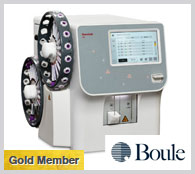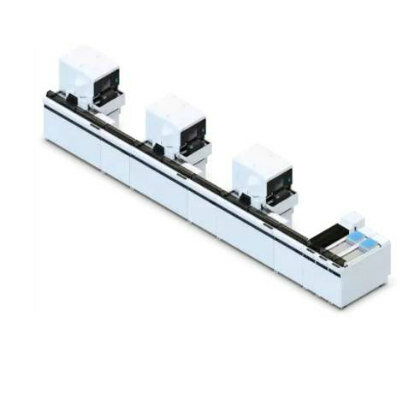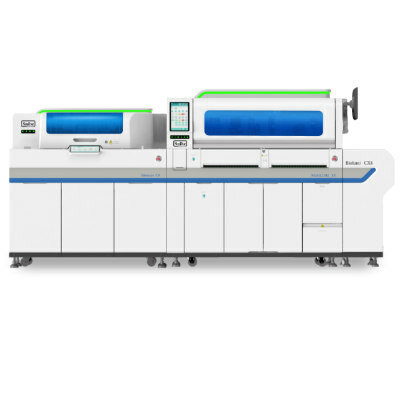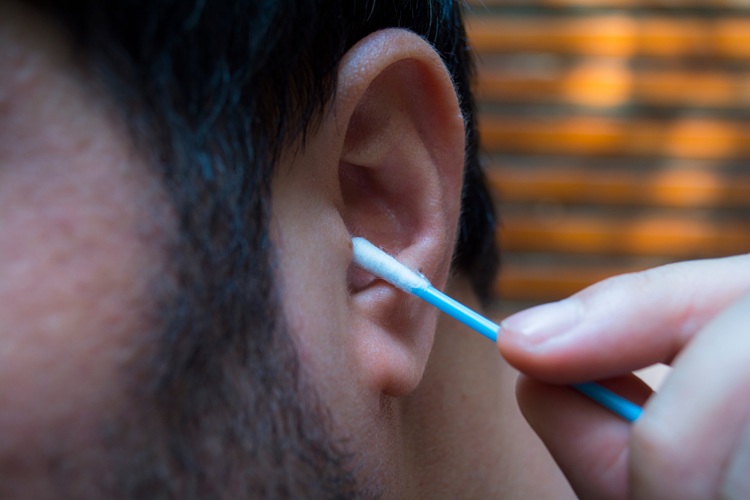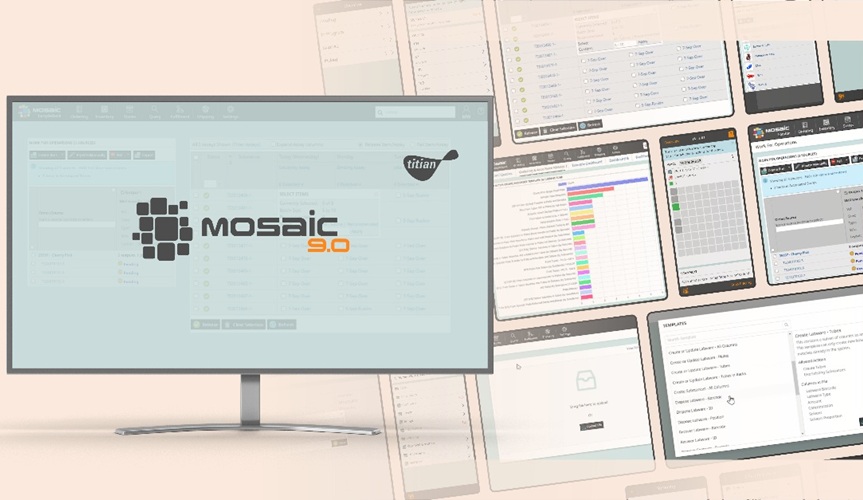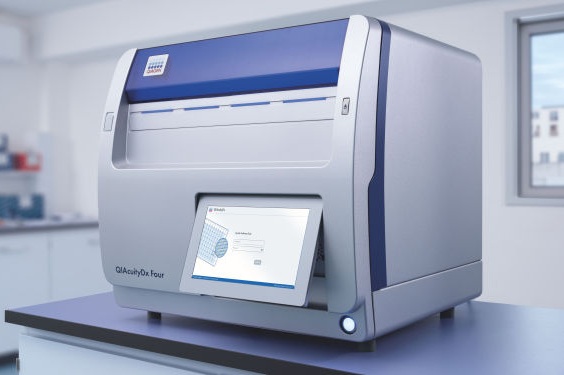A Novel Capsule-Based Smell Test for Diagnosis of Neurological and Respiratory Diseases
|
By LabMedica International staff writers Posted on 10 May 2021 |
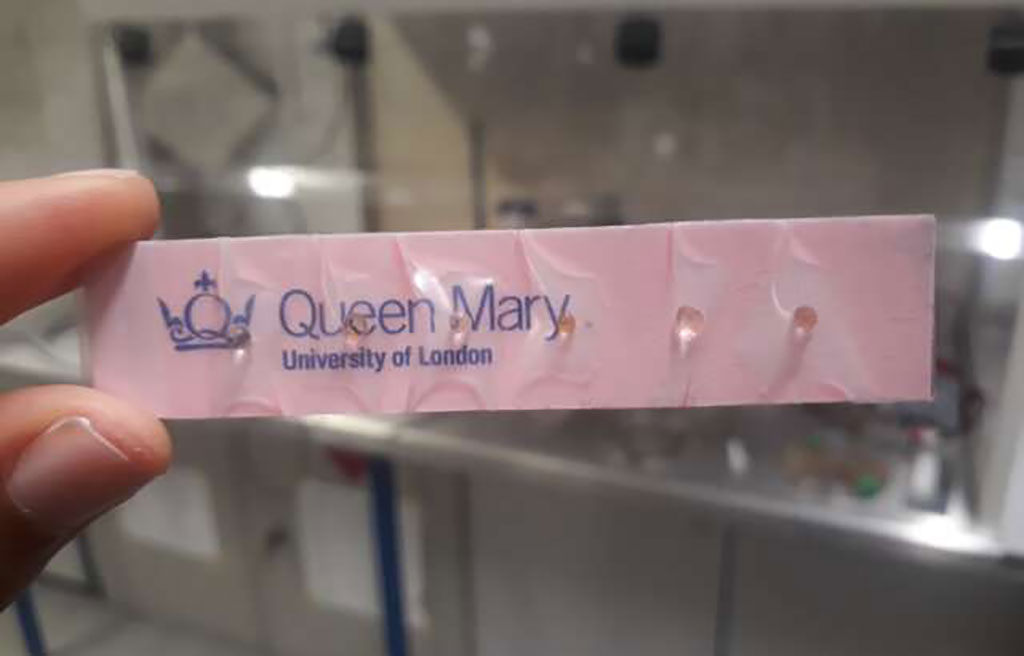
Image: Photograph of the novel capsule-based smell test (Photo courtesy of Queen Mary University of London)
To aid in diagnosing diseases where loss of the sense of smell is a symptom, such as in chronic neurological conditions like Parkinson's and Alzheimer's diseases and in acute respiratory infections such as that caused by COVID-19, a team of researchers at Queen Mary University of London (United Kingdom) developed a novel smell testing kit based on capsules of aromatic oils placed between two strips of single-sided tape.
This smelling test was made up of aromatic oil capsules that were prepared by a fabrication technique, which enabled full control over the capsule size, the shell thickness, and the volume of the encapsulated oil. The technique generated capsules by concentrically dripping oil/alginate droplets from a coaxial nozzle into an oppositely charged ionic liquid. After formation, liquid capsules were left to dry and form a solid crust surrounding the oil.
The prototype test used in the current study consisted of placing a standardized number of capsules between adhesive strips that users crushed and pulled apart to release the smell. In addition, a simple mathematical model was developed to predict the volume of encapsulated oil within the capsule in terms of the flow rate ratio and the nozzle size.
In this preliminary study, a small group of eight patients with Parkinson's disease were instructed to crush the capsules between their fingers and then peel back the tape strip to release the aroma contained within the capsules.
The participants reported that the smells from the tests were detectable and remarked on the relative ease of rupturing the capsules, particularly for those with tremors, compared to the standard scratch and sniff smell test available on the market.
First author Dr. Ahmed Ismail, a lecturer of fluid dynamics at Queen Mary University of London, said, "Most of the smell tests on the market depend on using paperboard items treated with a fragrant coating called scratch and sniff, in which you need to scratch a card to release the odor. The problem with this approach is that the amount of odor released depends on the extent to which the individual scratches, something that might affect the outcome of the test. Our capsule-based smell test does not have this problem because the amount of odor released is controlled by the amount of oil precisely encapsulated. The mass-production of our new test would also be cheaper than a scratch and sniff test.
Dr. Ismail said, "Our capsule-based smell test can assist in the rapid diagnostic of various diseases linked to the loss of smell. These include chronic neurological conditions such as Parkinson's and Alzheimer's disease, as well as COVID-19, which is known to affect the sense of smell. Being non-invasive and less stressful, the capsule-based smell test has benefits over the nose swab in diagnosing COVID-19. This is an advantage for testing children in particular, as they are typically horrified if they need to do a nose swab, and the test can be done in the comfort of their own home."
The capsule-based smell test was described in the April 28, 2021, online edition of the journal Royal Society Interface.
Related Links:
Queen Mary University of London
This smelling test was made up of aromatic oil capsules that were prepared by a fabrication technique, which enabled full control over the capsule size, the shell thickness, and the volume of the encapsulated oil. The technique generated capsules by concentrically dripping oil/alginate droplets from a coaxial nozzle into an oppositely charged ionic liquid. After formation, liquid capsules were left to dry and form a solid crust surrounding the oil.
The prototype test used in the current study consisted of placing a standardized number of capsules between adhesive strips that users crushed and pulled apart to release the smell. In addition, a simple mathematical model was developed to predict the volume of encapsulated oil within the capsule in terms of the flow rate ratio and the nozzle size.
In this preliminary study, a small group of eight patients with Parkinson's disease were instructed to crush the capsules between their fingers and then peel back the tape strip to release the aroma contained within the capsules.
The participants reported that the smells from the tests were detectable and remarked on the relative ease of rupturing the capsules, particularly for those with tremors, compared to the standard scratch and sniff smell test available on the market.
First author Dr. Ahmed Ismail, a lecturer of fluid dynamics at Queen Mary University of London, said, "Most of the smell tests on the market depend on using paperboard items treated with a fragrant coating called scratch and sniff, in which you need to scratch a card to release the odor. The problem with this approach is that the amount of odor released depends on the extent to which the individual scratches, something that might affect the outcome of the test. Our capsule-based smell test does not have this problem because the amount of odor released is controlled by the amount of oil precisely encapsulated. The mass-production of our new test would also be cheaper than a scratch and sniff test.
Dr. Ismail said, "Our capsule-based smell test can assist in the rapid diagnostic of various diseases linked to the loss of smell. These include chronic neurological conditions such as Parkinson's and Alzheimer's disease, as well as COVID-19, which is known to affect the sense of smell. Being non-invasive and less stressful, the capsule-based smell test has benefits over the nose swab in diagnosing COVID-19. This is an advantage for testing children in particular, as they are typically horrified if they need to do a nose swab, and the test can be done in the comfort of their own home."
The capsule-based smell test was described in the April 28, 2021, online edition of the journal Royal Society Interface.
Related Links:
Queen Mary University of London
Latest COVID-19 News
- New Immunosensor Paves Way to Rapid POC Testing for COVID-19 and Emerging Infectious Diseases
- Long COVID Etiologies Found in Acute Infection Blood Samples
- Novel Device Detects COVID-19 Antibodies in Five Minutes
- CRISPR-Powered COVID-19 Test Detects SARS-CoV-2 in 30 Minutes Using Gene Scissors
- Gut Microbiome Dysbiosis Linked to COVID-19
- Novel SARS CoV-2 Rapid Antigen Test Validated for Diagnostic Accuracy
- New COVID + Flu + R.S.V. Test to Help Prepare for `Tripledemic`
- AI Takes Guesswork Out Of Lateral Flow Testing
- Fastest Ever SARS-CoV-2 Antigen Test Designed for Non-Invasive COVID-19 Testing in Any Setting
- Rapid Antigen Tests Detect Omicron, Delta SARS-CoV-2 Variants
- Health Care Professionals Showed Increased Interest in POC Technologies During Pandemic, Finds Study
- Set Up Reserve Lab Capacity Now for Faster Response to Next Pandemic, Say Researchers
- Blood Test Performed During Initial Infection Predicts Long COVID Risk
- Low-Cost COVID-19 Testing Platform Combines Sensitivity of PCR and Speed of Antigen Tests
- Finger-Prick Blood Test Identifies Immunity to COVID-19
- Quick Test Kit Determines Immunity Against COVID-19 and Its Variants
Channels
Clinical Chemistry
view channel
New Reference Measurement Procedure Standardizes Nucleic Acid Amplification Test Results
Nucleic acid amplification tests (NAATs) play a key role in diagnosing a wide range of infectious diseases. These tests are generally known for their high sensitivity and specificity, and they can be developed... Read more
Pen-Like Tool Quickly and Non-Invasively Detects Opioids from Skin
Opioid drugs such as fentanyl, morphine, and oxycodone are the primary substances associated with overdose cases in the United States. Standard drug screening procedures typically involve collecting blood,... Read moreHematology
view channel
Disposable Cartridge-Based Test Delivers Rapid and Accurate CBC Results
Complete Blood Count (CBC) is one of the most commonly ordered lab tests, crucial for diagnosing diseases, monitoring therapies, and conducting routine health screenings. However, more than 90% of physician... Read more
First Point-of-Care Heparin Monitoring Test Provides Results in Under 15 Minutes
Heparin dosing requires careful management to avoid both bleeding and clotting complications. In high-risk situations like extracorporeal membrane oxygenation (ECMO), mortality rates can reach about 50%,... Read moreImmunology
view channel
Blood Test Detects Organ Rejection in Heart Transplant Patients
Following a heart transplant, patients are required to undergo surgical biopsies so that physicians can assess the possibility of organ rejection. Rejection happens when the recipient’s immune system identifies... Read more
Liquid Biopsy Approach to Transform Diagnosis, Monitoring and Treatment of Lung Cancer
Lung cancer continues to be a major contributor to cancer-related deaths globally, with its biological complexity and diverse regulatory processes making diagnosis and treatment particularly difficult.... Read more
Computational Tool Exposes Hidden Cancer DNA Changes Influencing Treatment Resistance
Structural changes in tumor DNA are among the most damaging genetic alterations in cancer, yet they often go undetected, particularly when tissue samples are degraded or of low quality. These hidden genomic... Read moreMicrobiology
view channel
Credit Card-Sized Test Boosts TB Detection in HIV Hotspots
Current tuberculosis (TB) tests face major limitations when it comes to accurately diagnosing the infection in individuals living with HIV. HIV, a frequent co-infection with TB, complicates detection by... Read more
Fecal Metabolite Profiling Predicts Mortality in Critically Ill Patients
Critically ill patients in medical intensive care units (MICUs) often suffer from conditions such as acute respiratory distress syndrome (ARDS) or sepsis, which are linked to reduced diversity of gut microbiota... Read more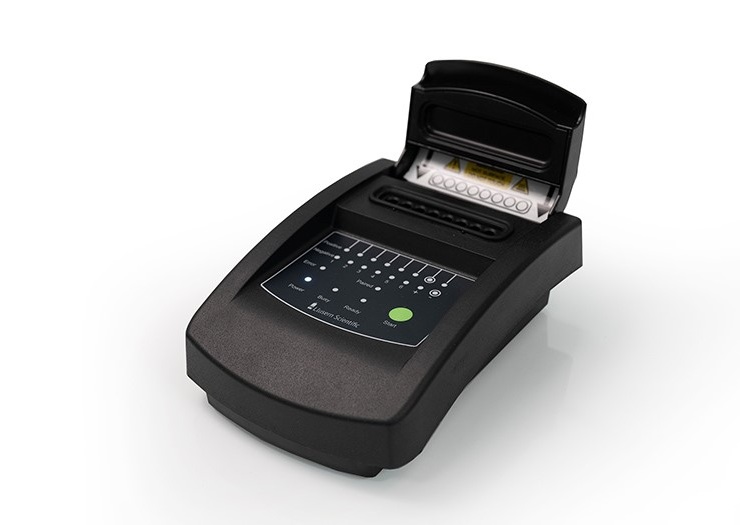
Portable Molecular POC System Rules Out UTIs in Just 35 Minutes
Urinary tract infections (UTIs) represent a massive burden on patients and healthcare systems. There are over 400 million UTI cases globally each year, of which around 90% are in women. Fast and accurate... Read more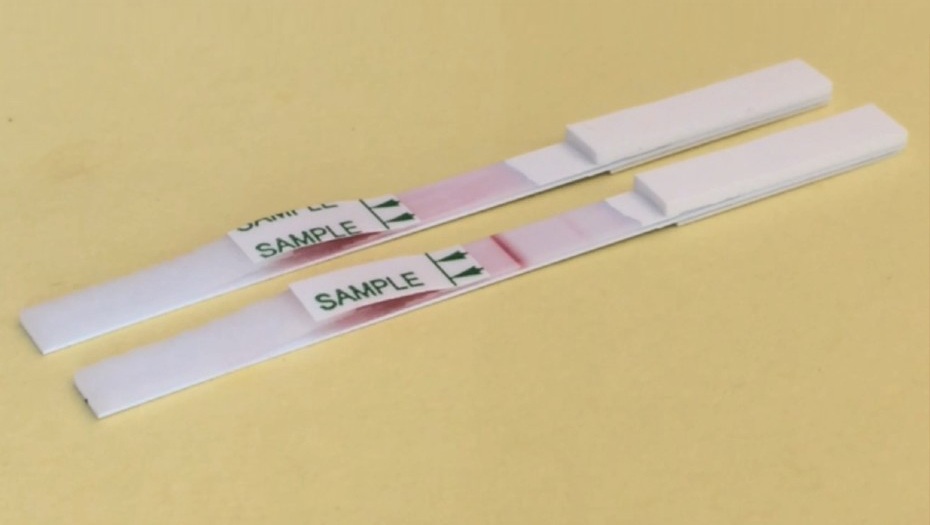
POC Lateral Flow Test Detects Deadly Fungal Infection Faster Than Existing Techniques
Diagnosing mucormycosis—an aggressive and often deadly fungal infection—remains a major challenge due to the disease’s rapid progression and the lack of fast, accurate diagnostic tools. The problem became... Read morePathology
view channelAI-Driven Preliminary Testing for Pancreatic Cancer Enhances Prognosis
Pancreatic cancer poses a major global health threat due to its high mortality rate, with 467,409 deaths and 510,992 new cases reported worldwide in 2022. Often referred to as the "king" of all cancers,... Read more
Cancer Chip Accurately Predicts Patient-Specific Chemotherapy Response
Esophageal adenocarcinoma (EAC), one of the two primary types of esophageal cancer, ranks as the sixth leading cause of cancer-related deaths worldwide and currently lacks effective targeted therapies.... Read more
Clinical AI Solution for Automatic Breast Cancer Grading Improves Diagnostic Accuracy
Labs that use traditional image analysis methods often suffer from bottlenecks and delays. By digitizing their pathology practices, labs can streamline their work, allowing them to take on larger caseloads... Read more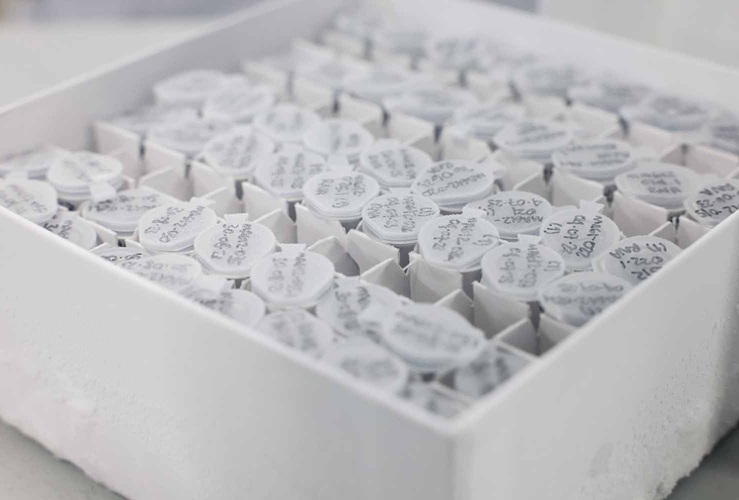
Saliva-Based Testing to Enable Early Detection of Cancer, Heart Disease or Parkinson’s
Saliva is one of the most accessible biological fluids, yet it remains underutilized in clinical practice. While saliva samples are used to perform genetic tests to determine, for example, paternity, the... Read moreTechnology
view channel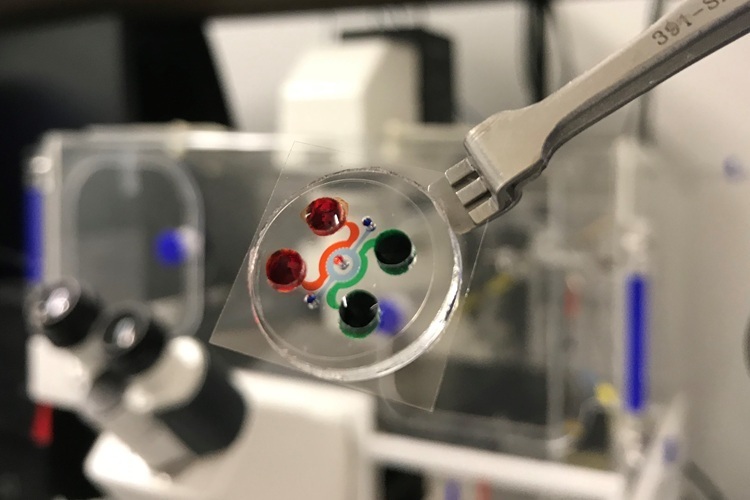
New Miniature Device to Transform Testing of Blood Cancer Treatments
Chimeric antigen receptor (CAR) T cell therapy has emerged as a groundbreaking treatment for blood cancers like leukemia, offering hope to patients when other treatments fail. However, despite its promise,... Read more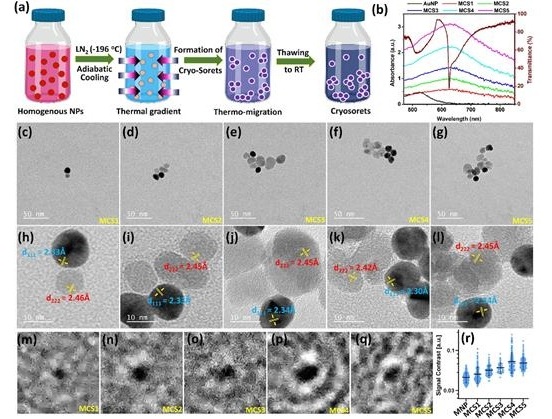
Biosensing Advancement to Enable Early Detection of Disease Biomarkers at POC
Traditional medical diagnostics often require clinical samples to be sent off-site, leading to time-consuming and costly processes. Point-of-care diagnostics offer a more efficient alternative, allowing... Read moreIndustry
view channel
AMP Releases Best Practice Recommendations to Guide Clinical Laboratories Offering HRD Testing
Homologous recombination deficiency (HRD) testing identifies tumors that are unable to effectively repair DNA damage through the homologous recombination repair pathway. This deficiency is often linked... Read more







